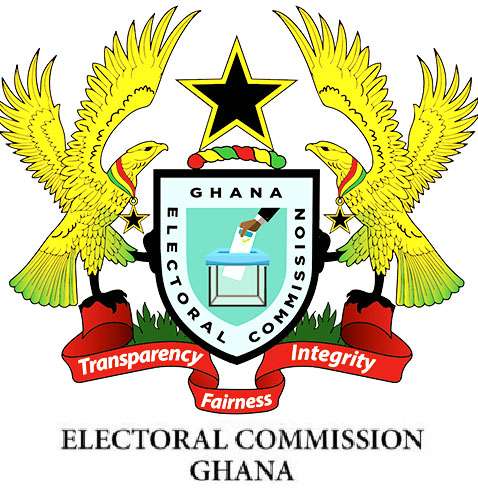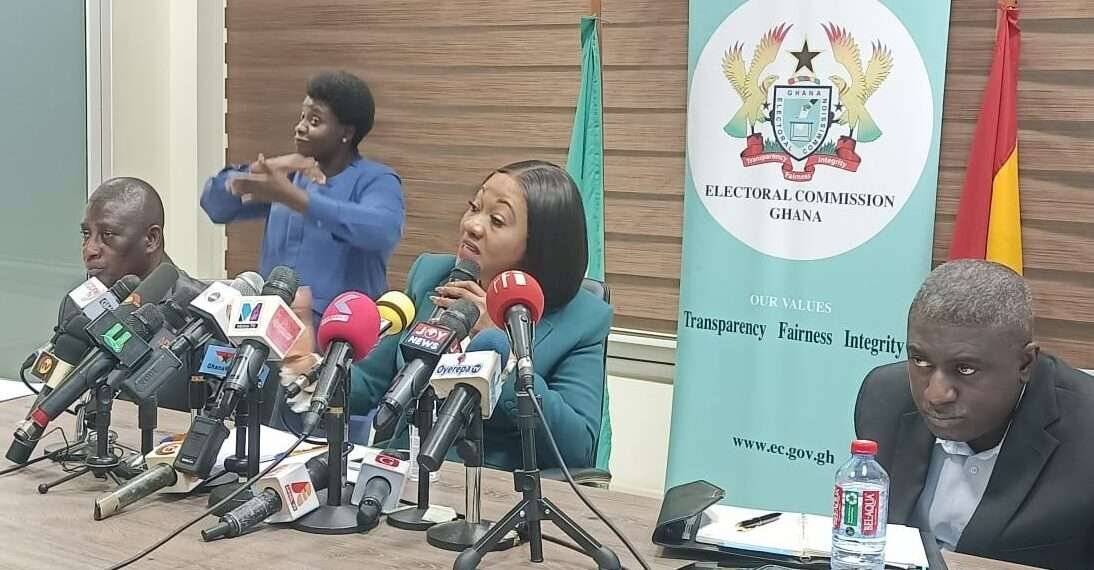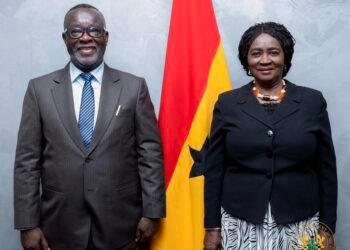As Ghana approaches its upcoming election, clarity on the total number of registered voters remains critical.
The Deputy Commissioner Dr. Bossman Asare of Ghana’s Electoral Commission addressed concerns raised by political parties regarding access to a comprehensive voter register, inclusive of summaries at both national and regional levels.
Dr. Asare explained the Electoral Commission’s efforts to ensure transparency and provide detailed voter registration data to political parties, including the ongoing processes to meet party requests for additional data analysis.
“We know the total number of registered voters nationally. We know the total number [of] the multiples per region. We have all these numbers.”
Dr. Bossman Asare Deputy Chair of the Elctoral Commission
However, Dr. Asare pointed out that additional data processing was required to generate specific summaries that some political parties requested, including summaries at the regional level.
Request for Summaries and Ongoing Audits
According to Dr. Asare, one of the political parties had asked for summaries of the voter data, beyond the core information in the register already provided to them.
“What the commission said yesterday was that because one of the parties requested that they wanted us to give them summaries of all the registers we’ve given to them, the commission took it upon itself to ensure that we will provide all these data, not only at the national level but also at the regional level.”
Dr. Bossman Asare Deputy Chair of the Elctoral Commission
Dr. Asare explained. He noted that providing such detailed summaries required additional auditing of the data, a task the Commission is currently undertaking.
Availability of Certified Registers for Political Parties
“This is something by law the Electoral Commission is supposed to give to the political parties, and that’s what we did yesterday.”
Dr. Bossman Asare Deputy Chair of the Elctoral Commission
Citing CI 91, Regulation 27, Dr. Asare explained that within 21 days of finalizing the certified register, the Commission is required to make it available to political parties and other appropriate entities.
He further clarified that the register provided to the parties includes the total number of registered voters per region, constituency, and polling station, as well as lists for exceptions, multiples, proxies, and other details.
Political Parties’ Responsibility and Access to Data

Dr. Asare highlighted that, given the extensive data already provided, it is now the responsibility of political parties to utilize the information within the documents and external drives provided to them. He said, “The onus is on the political parties.” He acknowledged that the Electoral Commission has also begun a process to provide national summaries to make it easier for political parties to extract the data they require, but noted this will require “some auditing,” which he assured is “ongoing.”
To address questions regarding whether the Commission itself had immediate access to a complete voter summary, Dr. Asare affirmed the EC’s data system and its transparency.
“We have a database which contains all this information,” he stated, indicating that parties had received data including the total number of registered voters per region, multiple lists, exception lists, and absentee lists.
“To dig deeper will require that for example, if you mentioned that nationally, we’ve registered 80,000 370,000 in that manner. You want to know how many people are registered in Greater Accra, in Ashanti, in Eastern, in Central, in that manner.”
Dr. Bossman Asare Deputy Chair of the Elctoral Commission
Meeting Party Expectations and Avoiding Delays
Dr. Asare acknowledged the delays that political parties experienced while waiting at the Commission’s offices, which stemmed from efforts to compile additional summaries in response to party requests.
“The Commission said to be able to meet the expectation of the parties, we’re going to dig deeper. And we noticed that to be able to get all that information for the political parties, it will require some additional level of work, including some auditing.”
Dr. Bossman Asare Deputy Chair of the Elctoral Commission
Nevertheless, he reaffirmed that the Commission had already provided “everything they need” and that efforts to provide additional summaries were intended to simplify the process for parties.
Historical Precedents in Providing Register Summaries
Dr. Asare highlighted that in past elections, the Commission provided the register without summaries, explaining that this was standard practice.
“In 2020, we gave the register to the political parties. We didn’t give them any summary. In 2023, during the district-level elections, we gave the register to the political parties. We didn’t give them any summaries.”
Dr. Bossman Asare Deputy Chair of the Elctoral Commission
He assured that while summaries were generally shared with the public at the national level, the Commission was willing to take the extra step of providing summaries to political parties this year as an added measure of transparency.
In conclusion, Dr. Asare reiterated the Electoral Commission’s commitment to transparency and accuracy in meeting the data needs of political parties.
The efforts underway aim to foster an informed and smooth electoral process, enabling political parties and the public to have a clear understanding of voter registration details across Ghana.
Dr. Asare’s comments underscore the Electoral Commission’s efforts to meet its obligations while remaining transparent and responsive to the needs of political stakeholders.
READ ALSO; Ruger Slams Nigerian Music Industry























